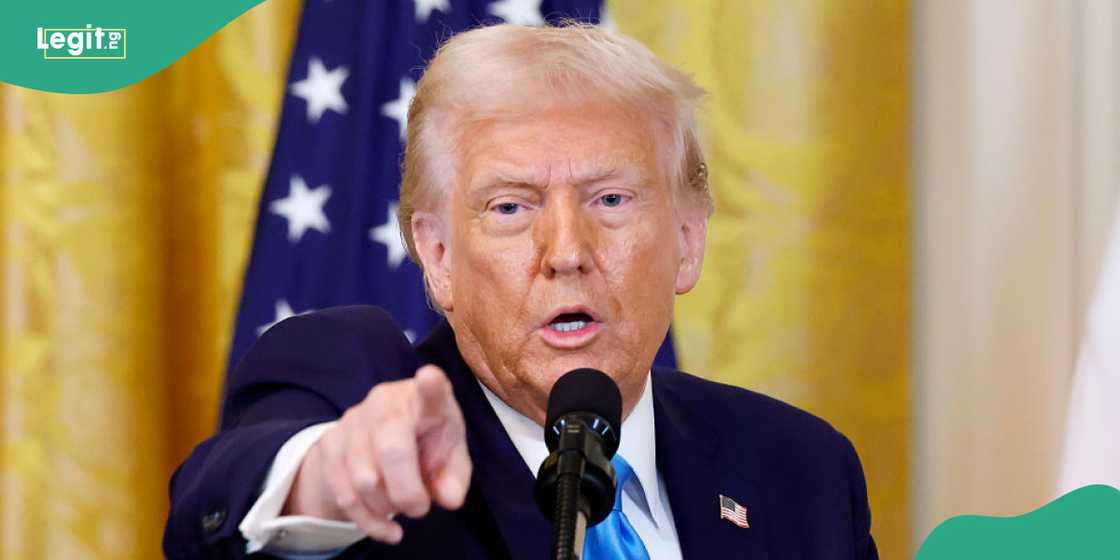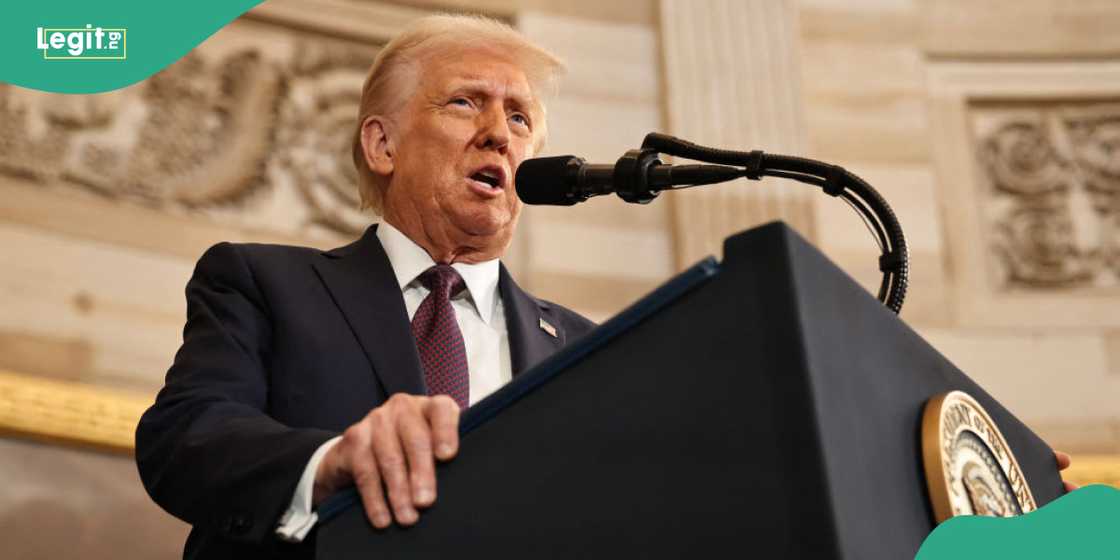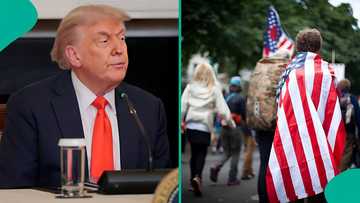Trump Reportedly Revokes Legal Status of Migrants From 4 Countries as Details Emerge
- The Department of Homeland Security revoked the legal status of hundreds of thousands of migrants from Cuba, Haiti, Nicaragua, and Venezuela, terminating their parole status
- This decision is part of the Trump administration's broader efforts to restrict immigration, with the Supreme Court ruling allowing expedited deportations of 530,000 migrants
- The move has sparked political debate, with supporters arguing the program offered a legal path for migrants and critics, including Republicans, claiming it undermined U.S. immigration integrity
In a controversial move, the Department of Homeland Security (DHS) on Thursday, June 12, revoked the legal status of hundreds of thousands of migrants from Cuba, Haiti, Nicaragua, and Venezuela.
The notice directed the migrants to leave the United States or face potential deportation.

Source: Getty Images
As reported by CNN, this action is part of the Trump administration’s ongoing effort to address migration policies.
Termination of parole program for migrants
The DHS issued a termination notice to individuals who had come to the U.S. under the Biden-era parole program, which had allowed nationals from the four countries to legally enter and reside in the United States.
The notice informed recipients that their parole status was officially revoked and advised them to depart the country voluntarily.
"If you do not leave, you may be subject to enforcement actions, including but not limited to detention and removal," the DHS notice read.
The notice also revoked work permits associated with the parole program, directing migrants to return these permits to the U.S. Citizenship and Immigration Services (USCIS).
The programme had benefited over half a million people from Cuba, Haiti, Nicaragua, and Venezuela, though it remains unclear how many of those have sought other forms of immigration relief.
Trump administration’s broader efforts to restrict immigration
Thursday's action marks the latest development in the Trump administration's aggressive push to restrict migration to the U.S.
This move follows a series of policies aimed at reducing both legal and illegal immigration, particularly from Central and South American countries.
Tricia McLaughlin, Homeland Security Assistant Secretary, defended the decision, calling it a return to "common-sense policies."
She added, "Ending the CHNV parole programs, as well as the paroles of those who exploited it, will be a necessary return to public safety and a return to America First."
The decision to revoke legal status follows a legal battle that began under the Biden administration.
The program, initiated in 2023, was designed to reduce border crossings by offering a legal path for migrants to apply to enter the U.S.
However, the program became a political flashpoint, with critics from the Republican Party arguing that it was an overreach of executive power.
Supreme Court intervention on parole program
The Trump administration’s actions stem from a decision by the U.S. Supreme Court, which ruled in favour of terminating the parole status for the affected migrants.
While the emergency decision is not final, as the underlying legal case is still being pursued in lower courts, it allows the administration to proceed with expedited deportations of an estimated 530,000 migrants.
The Trump administration had originally sought to end the program on his first day in office, prompting legal challenges that made their way to the Supreme Court.
The administration argued that lower court rulings blocking the policy had disrupted "critical immigration policies" and undermined executive branch prerogatives.
Political implications of the decision

Source: Getty Images
This move comes at a critical moment in U.S. politics, with immigration remaining a key issue ahead of future elections.
The Trump administration’s decision to strip protections from migrants who had benefited from the Biden-era program has sparked renewed debate over the U.S.'s approach to immigration, as well as the balance of power between the executive and the judiciary.
Supporters of the programme argue that it offered a safer, legal path for migrants, while critics, including many Republican lawmakers, contend that it incentivised illegal immigration and undermined the integrity of U.S. borders.
As the legal battle continues, the future of the parole programme and its recipients remains uncertain, with millions of migrants potentially affected by the ongoing changes in U.S. immigration policy.

Read also
US immigration lawyer clarifies Trump’s travel ban on 19 countries: ‘What nationals must know’
Trump deploys 2000 troops to Los Angeles amid migrant raid
Previously, Legit.ng reported that Los Angeles experienced heightened tensions as US President Donald Trump ordered the deployment of 2,000 National Guardsmen to the city in response to ongoing clashes over immigration enforcement raids.
The federal intervention followed a second day of unrest on Saturday, with protesters confronting federal agents.
Source: Legit.ng





